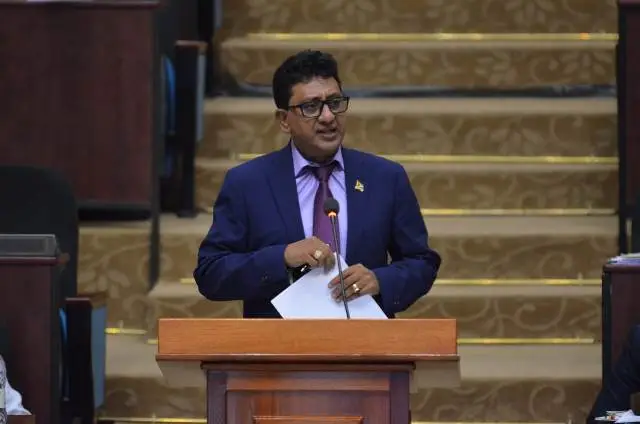The National Assembly approved several significant pieces of legislation during the 82nd Sitting of the Twelfth Parliament, which concluded last evening after extensive deliberations. The newly passed bills are expected to bring about notable reforms in arbitration, criminal procedure, river and sea defence, and extradition.
Among the prominent pieces of legislation passed is the Arbitration Bill, designed to modernize the arbitration framework in Guyana. This bill aims to establish Guyana as a central hub for both domestic and international commercial arbitration. It provides comprehensive guidelines to streamline arbitration processes, fostering an environment conducive to resolving disputes outside traditional court systems.
Attorney General and Minister of Legal Affairs, Anil Nandlall, who presented the legislation highlighted the necessity of this bill, stating, “We have an Arbitration Act in Guyana. It was enacted in 1916 and is the 1889 Arbitration Act of the United Kingdom. It is therefore 135 years old. It was only amended twice. In 1927 and in 1931. Almost 100 years ago.
“Without doubt, our statutory arbitral framework is one of the oldest in the world. Naturally, it is completely anachronistic, ancient and unsuitable to meet the demands of today’s commercial environment.”
Additionally, the assembly passed the Criminal Procedure (Plea Discussion, Plea Agreement, Plea Assistance Agreement) Bill 2023 and the Paper Committal Bill. Both bills aim to abolish preliminary inquiries (PIs) for indictable offences in the Magistrate’s Court. This move is expected to significantly reduce the duration that individuals facing serious charges spend on remand while awaiting trial in the High Court. Nandlall emphasized the impact of this reform, noting that the abolition of PIs would address the longstanding backlog of cases in the High Court and improve conditions for remand prisoners.
Nandlall also elaborated on the new plea-bargaining provisions, explaining, “Guyana has a modern Plea-Bargaining Act. Plea-bargaining can even take place before charges are instituted, turning accused individuals into state witnesses to ensure convictions and maintain a fair justice system. This is not intended to water down or to dilute the system of punishment for wrongdoers.”
In a related move, an alteration to the Fugitive Amendment Act was also approved. This amendment is set to fortify Guyana’s extradition laws, ensuring more effective cooperation with international partners, particularly the United States. Nandlall remarked, “So, when persons commit an offence in Guyana and is in the United States of America, we can make that request of the Americans and they will send that person back to stand trial in Guyana.”
Furthermore, the Sea and River Defence Bill received parliamentary approval, aimed at revamping the existing legislation to enhance flood management and protection from sea or river inundation.
Minister of Public Works, Juan Edghill, presented the bill, emphasizing its role in updating and refining the legislation to meet contemporary and future challenges. Edghill stated, “The objective of this bill is not to rewrite the legislation or to introduce major policy changes but to update and refine the legislation to meet current and future challenges.” The bill emphasizes flood management planning, ensuring that all defences are well-identified, designed, and maintained while promoting public participation and consultation.
Minister Edghill also addressed the critical issue of climate change, highlighting the bill’s focus on the vulnerability of Guyana’s Low Coastal Plain to rising sea levels. “This bill will introduce a system of flood management planning to ensure all defenses are properly identified, designed, and maintained, while at the same time enhancing public participation and consultation,” he said.
The government’s side of the House contended that this comprehensive legislative package approved in this session reflects it’s commitment to modernizing the legal framework and addressing critical issues such as dispute resolution, criminal justice reform, extradition processes, and environmental protection. These reforms are anticipated to have far-reaching impacts on the legal and socio-economic landscape of Guyana, promoting efficiency, justice, and resilience in various sectors.













